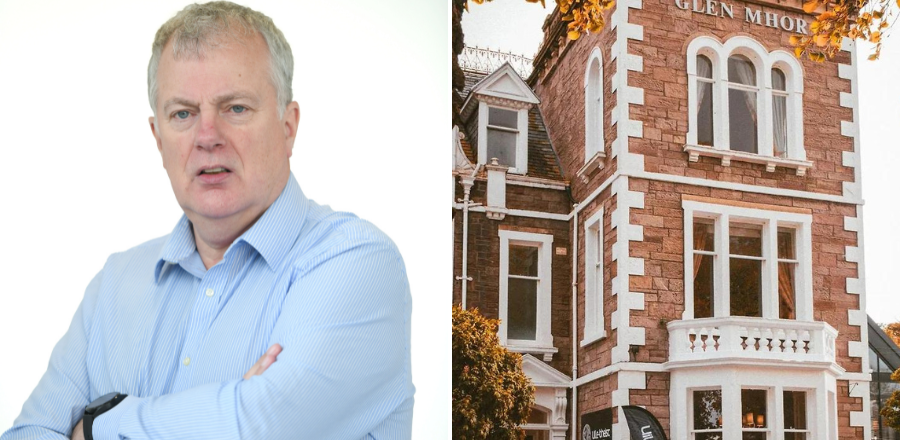Glasgow Caledonian helps fuel sustainability at Glen Mhor Hotel

Academics at Glasgow Caledonian University have helped a highland hotel assess the impact of transitioning from natural gas to low-carbon heating systems.
In 2006, Jon and Victoria Erasmus acquired Glen Mhor Hotel, expanding it by purchasing neighbouring buildings and establishing a low-carbon brewery and distillery.
A significant milestone was reached in 2022 with the opening of Scotland's first river water source energy centre at Glen Mhor. This innovative system aims to decarbonise the hotel’s heating and hot water through groundwater boreholes and water source heat pumps. By the end of this year, the hotel aims to be entirely gas-free.
To develop and monitor this new energy system, Glen Mhor partnered with Glasgow Caledonian through Interface, a public organisation connecting businesses to academic expertise. Professor Jim Baird, from the University’s School of Computing, Engineering and Built Environment, assessed the hotel’s metered energy systems, developing an economic model to quantify carbon emissions saved by the new energy centre. This project, funded by a Standard Innovation Voucher, provided evidence-based methodologies and insights into the economic benefits of low carbon solutions.
The collaboration with Glasgow Caledonian has brought significant benefits to Glen Mhor. The energy centre has reduced carbon emissions, safeguarded jobs, increased turnover, and reduced operational costs.
For the University, the project offered valuable insights into the economics of low carbon heating solutions, with further analysis anticipated as more data is collected.
Professor Baird said: “The partnership between Glen Mhor and the University exemplifies the power of academic collaboration, setting a powerful example for the hospitality sector. These efforts enhance sustainability, paving the way for a future where businesses thrive alongside their communities and the environment.”
